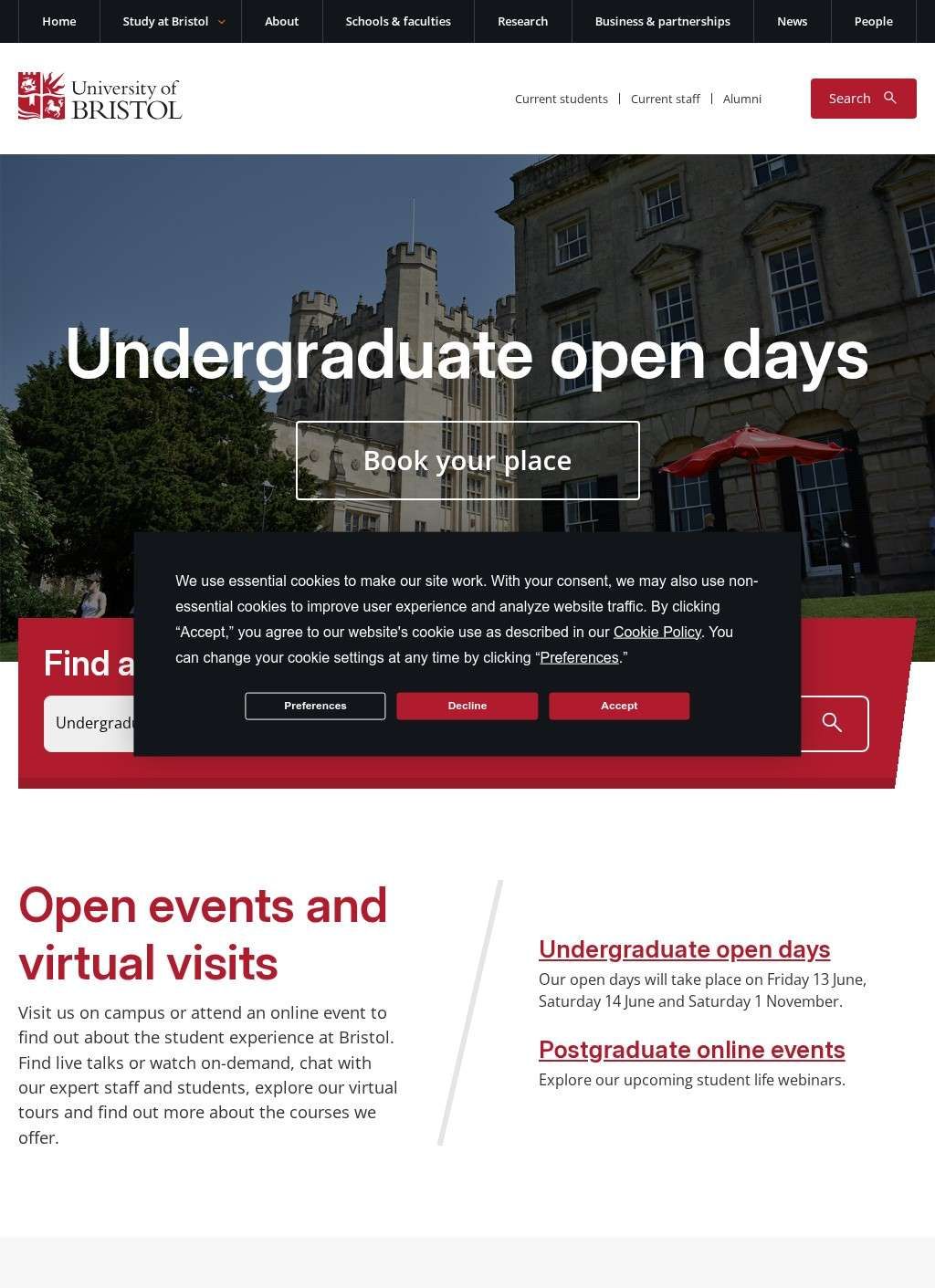The University of Bristol stands among Britain's most prestigious institutions, consistently ranking within the global top 60 universities while maintaining deep roots in its vibrant home city. Founded in 1876 and receiving its royal charter in 1909, the university has grown to educate over 27,000 students across six academic faculties. Its city-center campus spreads through Bristol's historic neighborhoods, with iconic buildings like the Wills Memorial Building symbolizing academic excellence alongside cutting-edge facilities driving 21st-century research.
Research excellence defines Bristol's international reputation, with 94% of research rated 'world-leading' or 'internationally excellent' in the latest Research Excellence Framework. The university ranks fifth nationally for research quality, excelling particularly in areas addressing global challenges. From quantum computing to climate science, social justice to synthetic biology, Bristol researchers push boundaries while maintaining strong industry partnerships. The £18.5 million Bristol Laboratory for Advanced Dynamics Engineering exemplifies infrastructure investment supporting world-class investigation.
Academic offerings span over 600 undergraduate and postgraduate programs taught by leading scholars. Entry standards remain among Britain's highest, with students averaging 485 UCAS points. The institution particularly excels in STEM fields – engineering, mathematics, and sciences – while maintaining strength across social sciences, arts, and humanities. Medical and veterinary programs benefit from close NHS partnerships, providing clinical training in real healthcare settings. Innovative teaching methods blend traditional lectures with practical experience and digital resources.
Sustainability leadership distinguishes Bristol among global universities. As the first UK university declaring a climate emergency, Bristol embeds environmental responsibility throughout operations and curriculum. The Cabot Institute for the Environment coordinates research addressing climate change, natural hazards, and sustainable futures. Carbon reduction initiatives span from renewable energy installations to sustainable food systems. Academic programs increasingly incorporate sustainability perspectives, preparing graduates for careers addressing environmental challenges.
The Temple Quarter Enterprise Campus, opening in 2026, represents Bristol's largest physical expansion in generations. This £300 million development near Temple Meads station will house 5,000 students and staff in state-of-the-art facilities. Focusing on digital innovation, business education, and social research, the campus embodies university-city partnership. Public spaces, cultural venues, and business incubators will create an innovation district benefiting the wider community while advancing Bristol's knowledge economy ambitions.
Student experience extends beyond academics into Bristol's dynamic cultural scene. The Students' Union operates over 350 societies covering interests from robotics to drama, mountaineering to entrepreneurship. World-class sports facilities support everything from casual fitness to elite competition. Mental health and wellbeing services recognize modern student pressures, providing counseling, workshops, and peer support. International students from 150 countries find dedicated support services easing transitions to UK life.
Industry connections ensure graduate employability, with Bristol ranking among the five most targeted universities by leading UK recruiters. Career services coordinate internships, mentoring schemes, and recruitment events throughout the academic year. Alumni networks spanning global industries provide ongoing professional connections. Many courses incorporate year-long placements, providing real-world experience before graduation. Entrepreneurship support helps students launch ventures, with Bristol producing numerous successful startups.
Community engagement reflects the university's civic responsibilities beyond education and research. Widening participation programs work with local schools, encouraging university aspirations among underrepresented groups. Public lectures, exhibitions, and festivals share knowledge beyond academic boundaries. The university serves as Bristol's largest employer, contributing over £1 billion annually to regional economy. Collaborative research addresses local challenges from health inequalities to sustainable urban development. Through teaching excellence, groundbreaking research, and deep community connections, the University of Bristol continues shaping both its historic city and global knowledge advancement.
